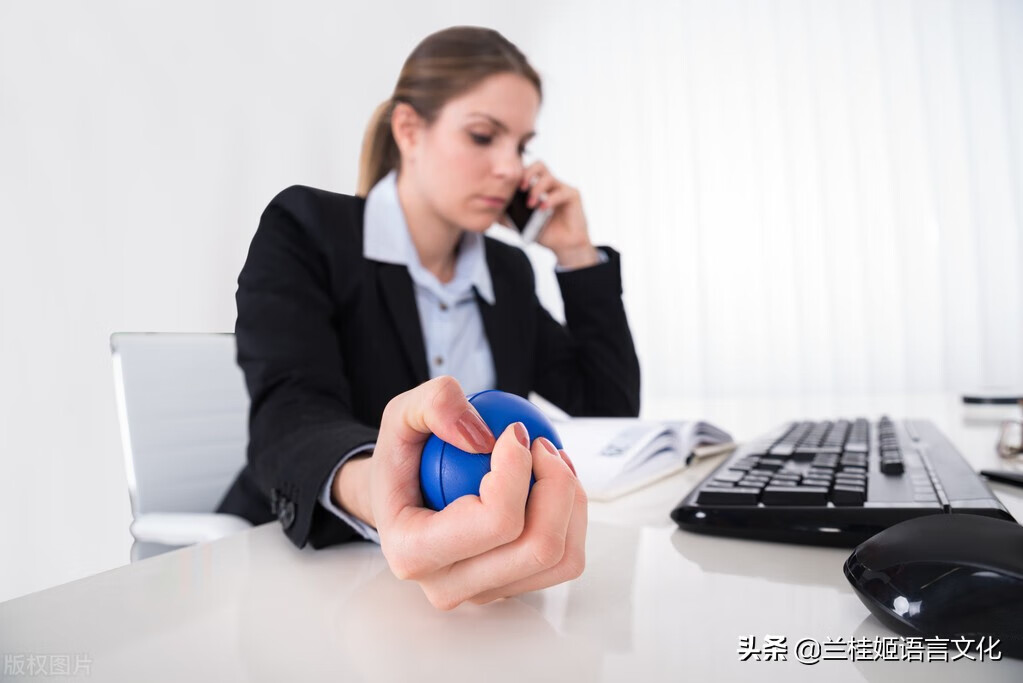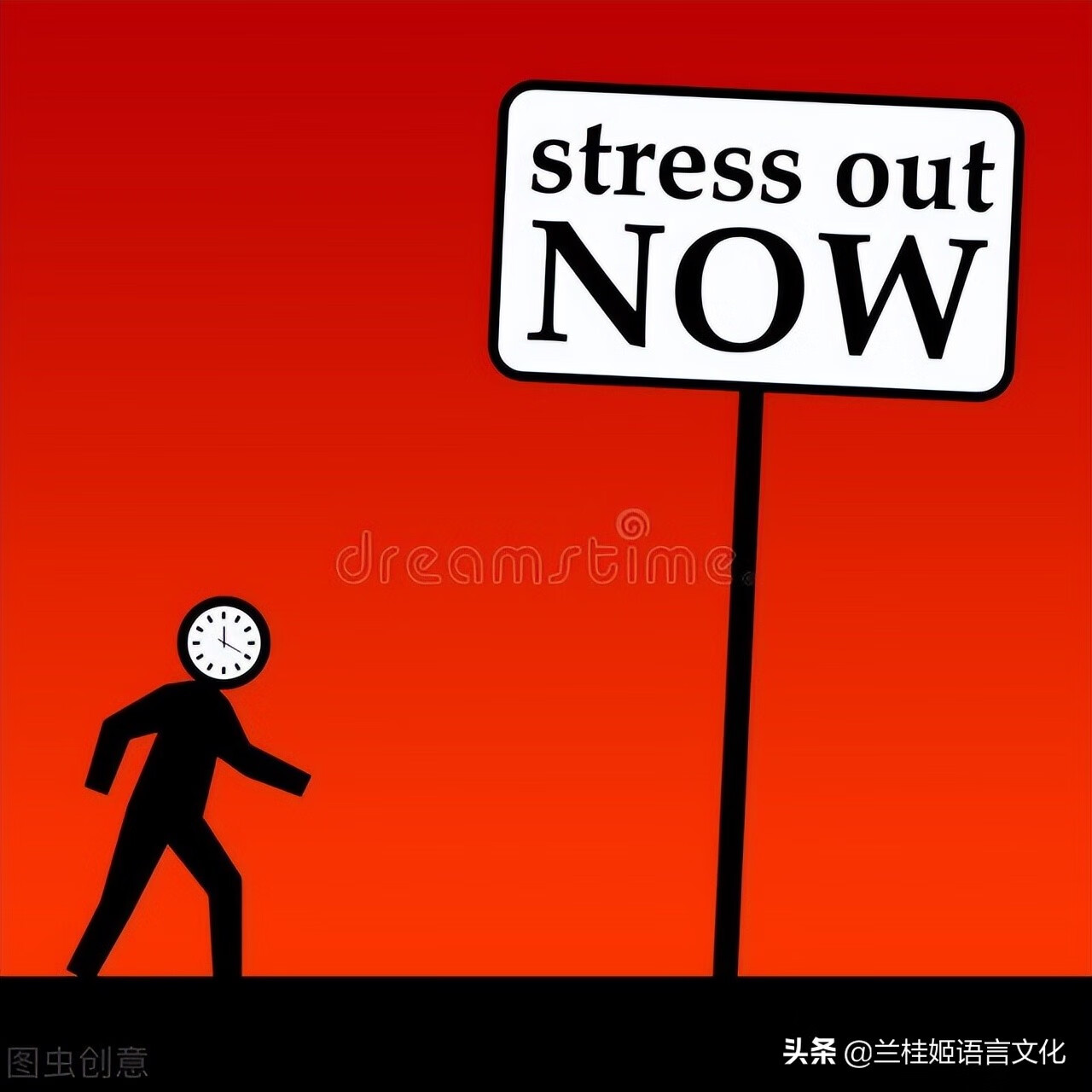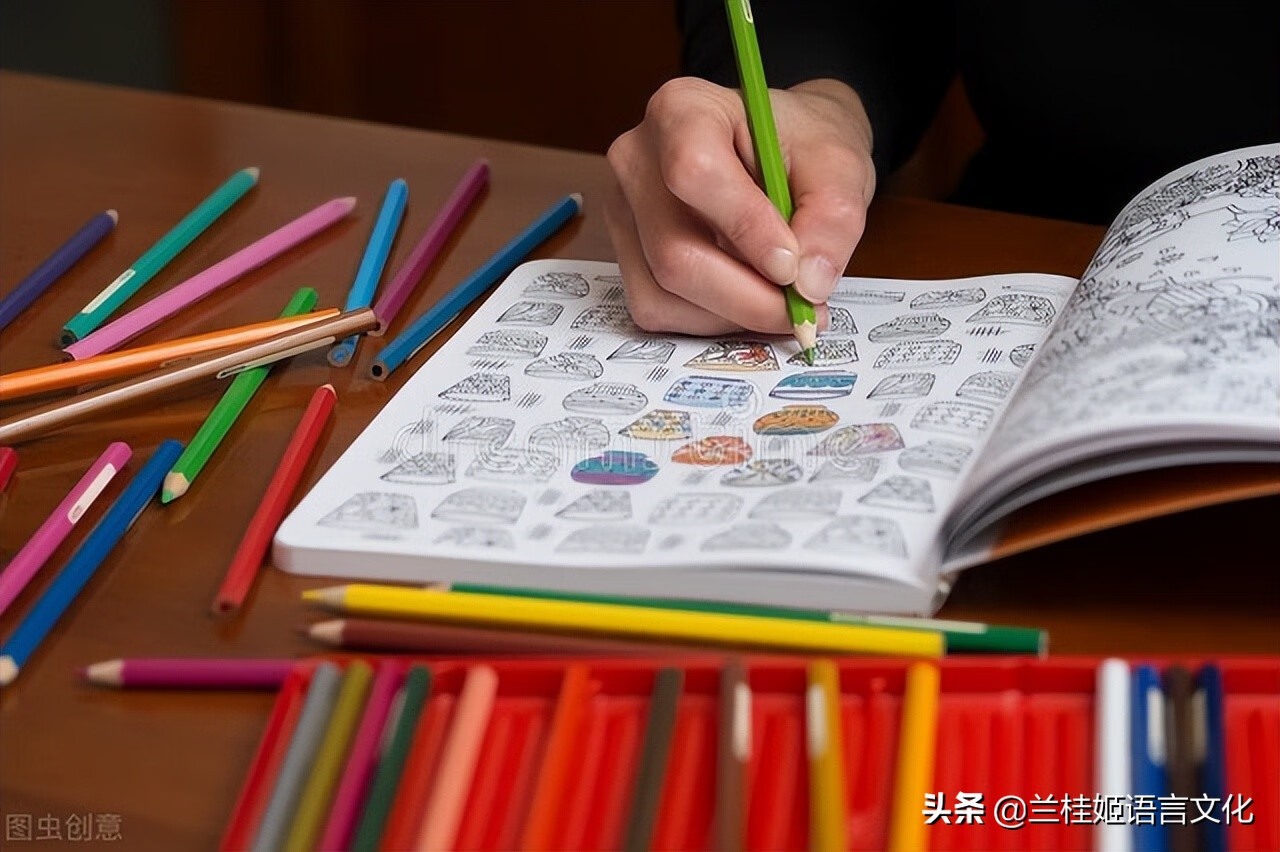Understanding stress recovery理解压力恢复
Recovery is the process of restoring symptoms of work stress (anxiety, exhaustion, and elevated levels of the stress hormone cortisol) back to pre-stressor levels. We refer to recovery as a skill, because knowing how and when you can best recover from stress requires both knowledge (of what works for you) and practice (actually doing it).恢复是将工作压力的症状(焦虑、疲惫和压力荷尔蒙皮质醇水平升高)恢复到压力前水平的过程。我们将恢复称为一项技能,因为了解如何以及何时可以最好地从压力中恢复需要知识(关于什么对您有用)和实践(实际去做)。

The paradox of recovery压力恢复的悖论
The process of recovery introduces a paradox. Research shows that when our bodies and minds need to recover and reset the most (i.e., when we’re most depleted), we’re the least likely — and able — to do something about it. For example, when work is demanding and we’re feeling overwhelmed, we quickly slide into a negative cycle of working longer hours and taking fewer breaks. During those stressful times, we also tend to eat less healthily, even though adequate nutrition and hydration are important to replenishing energy levels. Further depleted, we have less energy and motivation to take time out to relax or engage in exercise, leading to low recovery and in turn further exhaustion the next day.Organizational cultures that celebrate working on little sleep or that work in a constant state of emergency can exacerbate this, because despite your body begging to recover, there’s an underlying assumption that you can (and should) push through it.
恢复过程引入了一个悖论。研究表明,当我们的身体和思想最需要恢复和重置时(即,当我们最精疲力竭时),我们最不可能——也最有能力——对此采取行动。例如,当工作要求很高并且我们感到不知所措时,我们很快就会陷入工作时间更长、休息时间更少的负面循环。在那些压力大的时期,我们也倾向于吃得不那么健康,尽管充足的营养和水分对于补充能量水平很重要。进一步耗尽,我们没有精力和动力花时间放松或从事锻炼,导致恢复缓慢,进而在第二天进一步筋疲力尽。持续紧急状态下的工作和消耗休息时间的组织文化会加剧这种情况,因为尽管你的身体在乞求恢复,但有一个潜在的假设是你可以(并且应该)克服它。
To overcome this paradox, you must learn what works best for you and devise a recovery plan. It’s important to note that what actually works for stress recovery is not always as intuitive as you think. Here are five ways to make recovery work for you based on industry- and research-based insights.为了克服这个悖论,您必须了解最适合您的方法并制定恢复计划。重要的是要注意,实际上对压力恢复有效的方法并不总是像你想象的那么直观。这里有五种方法可以根据基于行业和研究的见解帮助您恢复工作。

1. Detach psychologically from work.心理上脱离工作。
“It sounds silly, but after a long, intense surgery, what I do to relax is play some video games to disconnect before I go home,” described an orthopedic surgeon participating in an executive class on stress management. Regardless of your preferred recovery activity (reading, running, video games, cooking, etc.), it’s important that you mentally disconnect or “switch off” your thoughts of work (or the particular stressor at hand). Workday stress accumulates throughout the day, meaning that we ruminate about work well into the evening. You may be physically present at an exercise class, but your mind is replaying the events of an earlier client meeting. Research shows that even thinking about work detracts from your ability to recover from it, and the mere presence of your mobile phone distracts you, leaving you unable to detach from “the office.”
“这听起来很傻,但经过长时间的紧张手术后,我会在回家前玩一些电子游戏来放松,”一位参加压力管理行政课程的整形外科医生描述道。无论您喜欢哪种恢复活动(阅读、跑步、电子游戏、烹饪等),重要的是您要在精神上断开或“关闭”您对工作的想法(或手头的特定压力源)。工作日的压力会在一天中累积,这意味着我们会一直沉思工作到晚上。您可能会亲自参加锻炼课程,但您的大脑正在重播之前客户会议的事件。研究表明,即使考虑工作也会降低您从中恢复的能力,而仅手机的存在就会分散您的注意力,使您无法脱离“办公室”。
To harness this principle, dedicate a fixed (and if needed, short) time each day when you can fully devote attention to a non-work-related activity. Even starting with a few minutes will reap benefits for recovery. Practicing mindfulness as a supplementary activity helps with this — over time, you’re training your brain (and its tendency to ruminate) to focus on the present moment. Learn which triggers prevent you from psychologically detaching from work. If, for instance, the presence of your phone prompts you to check work emails during off hours or breaks, turn it off or shut off notifications temporarily.
要利用这一原则,请每天花一段固定的时间(如果需要,可以短时间),让您可以全神贯注于与工作无关的活动。即使从几分钟开始也会为恢复带来好处。练习正念作为一种补充活动对此有所帮助——随着时间的推移,你正在训练你的大脑(以及它沉思的倾向)以专注于当下。了解哪些触发因素会阻止您从心理上脱离工作。例如,如果您的手机提示您在下班时间或休息时间查看工作电子邮件,请将其关闭或暂时关闭通知。

2. Harness the power of micro-breaks during the workday.在工作日利用微休息的力量。
“During the work week, I set my phone alarm to ring once every two hours as a needed reminder to step away from my computer, stretch, walk around, and get a drink of water,” an EVP of a multinational technology company recounted. Contrary to common assumptions that recovery can only happen after work or during a long holiday, research shows that micro-breaks — short breaks of approximately 10 minutes — taken during the workday are surprisingly effective for recovering from daily work stress and various job demands. For example, short moments of meditation or relaxing, taking time to eat a nutritious snack, enjoyable social interactions, or activities that require some degree of cognitive attention (such as reading) are strategies that can improve motivation and concentration, shape your mood, and sustain your energy during the day. Also, taking longer breaks in combination with more frequent short breaks can provide more energy, motivation, and concentration than infrequent short breaks. Interestingly, micro-breaks taken earlier in the workday contribute to greater recovery.
一家跨国科技公司的执行副总裁回忆说:“在工作周,我将手机闹钟设置为每两小时响一次,以提醒我离开电脑、伸展身体、四处走动和喝水。”与仅在工作后或长假期间才能恢复的普遍假设相反,研究表明,在工作日进行的微休息(大约 10 分钟的短暂休息)对于从日常工作压力和各种工作需求中恢复非常有效。例如,短暂的冥想或放松、花时间吃有营养的零食、愉快的社交互动或需要一定程度的认知注意力的活动(如阅读)都是可以提高动力和注意力、塑造情绪和在白天维持你的能量。此外,与不经常的短暂休息相比,较长时间的休息与更频繁的短暂休息相结合可以提供更多的能量、动力和注意力。有趣的是,工作日早些时候进行的微休息有助于更好地恢复。
3. Consider your preference for recovery activity.考虑您对恢复活动的偏好。
“I used to partake in my partner’s hobby during my free time so that we could spend quality time together. Then I realized I dreaded going to guitar lessons. Now, we do our own hobbies: I do my gardening while my partner learns guitar, and we carve out time to spend together afterwards.”“我过去常常在空闲时间参加我伴侣的爱好,这样我们就可以一起度过美好的时光。然后我意识到我害怕上吉他课。现在,我们有自己的爱好:我做园艺,而我的伴侣学习吉他,之后我们会抽出时间一起度过。”
Not having a choice in your own recovery can sometimes do more harm than good. For example, one study showed that when workers wanted to sit with coworkers and chat over the lunch break, it boosted their stress recovery. On the other hand, when workers were less keen about socializing over lunch but did so anyway (perhaps due to peer pressure or norms of the particular company culture), they found their energy highly depleted at the end of the day. The same pattern of depletion was also identified for working lunches. For most people, working over lunch is draining. Yet, if you personally choose to stay in a productive workflow during lunchtime (and get energized by accomplishing important tasks), there can be recovery benefits. Just keep in mind that relaxing is an important recovery activity that affords benefits , even when it’s not your most preferred lunch break activity.
在自己的康复过程中没有选择权有时弊大于利。例如,一项研究表明,当员工想在午休时间与同事坐在一起聊天时,可以促进他们的压力恢复。另一方面,当员工不太热衷于在午餐时间进行社交活动,但无论如何都这样做了(可能是由于同事压力或特定公司文化的规范),他们发现自己的精力在一天结束时高度消耗。工作午餐也出现了同样的消耗模式。对于大多数人来说,在午餐时间工作会让人筋疲力尽。然而,如果您个人选择在午餐时间保持高效的工作流程(并通过完成重要任务而充满活力),则可能会有恢复的好处。请记住,放松是一项重要的恢复活动,可以带来好处,即使它不是您最喜欢的午休活动。

4. Prioritize high-effort recovery activities.优先考虑费力的恢复活动。
“I may not be rah-rah about it ahead of time, but there has never been a gym session I’ve regretted afterwards,” proclaimed a senior executive of a multinational health care company. While it may seem that relaxing, watching TV, or other “passive” or “low-effort” activities are best for recovery, on the contrary, research shows that more active activities can be even more effective for recovery. If you don’t enjoy going to the gym or playing team sports, find a type of exercise that you do enjoy, such as a fast walk, a hike, or a swim.
一家跨国医疗保健公司的高级管理人员宣称:“我可能不会提前对它赞不绝口,但之后我从来没有参加后悔过健身课程。”虽然看起来放松、看电视或其他“被动”或“省力”的活动对恢复是最好的,但相反,研究表明,更积极的活动对恢复可能更有效。如果你不喜欢去健身房或参加团队运动,找一种你喜欢的运动,比如快走、远足或游泳。
Beyond exercise, other activities that work well for recovery are engaging in effortful activities, or “mastery experiences.” Mastery experiences require high levels of dedication, focus, and time — resources that usually zap you of energy during the workday. While it seems counterintuitive that further drawing on these resources during non-work periods will benefit your recovery, mastery experiences such as pursuing a hobby (learning a new language, learning to play the violin, volunteering, etc.) helps you generate new skills and replenishes depleted resources that can be applied back to your work, thereby approaching recovery from a different, productive, angle.
除了锻炼之外,其他对恢复效果很好的活动是进行艰苦的活动,或“掌握经验”。精通体验需要高度的奉献精神、专注力和时间——这些资源通常会在工作日消耗你的精力。虽然在非工作期间进一步利用这些资源将有益于您的康复似乎违反直觉,但追求爱好(学习一门新语言、学习拉小提琴、志愿服务等)等掌握经验有助于您获得新技能和补充耗尽的资源,这些资源可以重新应用到您的工作中,从而从不同的、富有成效的角度接近恢复。
5. Shape your environment for optimal recovery.塑造您的环境以实现最佳恢复。
One underrated, critical element of recovery is your surrounding environment. Some companies have caught on and are building direct and indirect exposure to natural elements into the workplace. Indeed, research on direct exposure to nature, such as through park walks during workday lunch breaks, shows that it can enhance your recovery from stress in as little as 10 minutes. In addition to short-term effects, being exposed to nature at work contributes positively to your well-being and lowers the likelihood of burnout. Exposure to daylight and having a window view or indoor greenery at the workplace have been shown to have a positive impact on your sleep quality, perceived stress, and overall health. Interestingly, indirect exposure to nature (for example, even looking at nature scenes on a screen) can also have benefits for recovery. In a nutshell, getting some nature into your workplace makes you more happy and energized at work.
一个被低估的、关键的恢复因素是你周围的环境。一些公司已经流行起来,
并正在将自然元素直接和间接地暴露在工作场所中。事实上,关于直接接触大自然的研究,例如在工作日午休期间通过公园散步,表明它可以在短短 10 分钟内促进你从压力中恢复过来。除了短期影响外,在工作中接触大自然对您的幸福感有积极影响,并降低倦怠的可能性。工作场所暴露在日光下、有窗景或室内绿化已被证明对您的睡眠质量、感知压力和整体健康有积极影响。有趣的是,间接接触大自然(例如,即使是在屏幕上看自然场景)也有利于康复。简而言之,让你的工作场所融入自然会让你在工作中更加快乐和充满活力。
by Alyson Meister,Bonnie Hayden Cheng,Nele Dael,Franciska Krings
